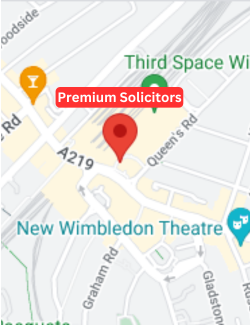According to Appendix HM Armed Forces of the Immigration Rules, members of His Majesty’s (HM) Armed Forces can apply for Indefinite Leave to Enter (ILR) or Indefinite Leave to Remain (ILR) upon discharge from service (‘service leavers’) if they wish to come to or stay in the UK. Applications can be made up to 18 weeks prior to discharge. Reference to a member of HM Armed Forces or a service leaver includes an applicant who was a member of HM Armed Forces but was discharged within the period of 2 years before the date of the application.
An HM Armed Forces leaver can apply for ILR inside the UK and Indefinite Leave to Enter (ILE) outside the UK. Those serving in the Reserve Forces cannot apply for ILR or ILE as Service Leavers.
Ask a Question for Free Immigration Advice
Our specialist team of immigration solicitors can provide one-off free immigration advice online in relation to your application for stay in the UK as a member of HM Armed Forces who has been discharged from HM Armed Forces. Ask a question online to our specialist team of immigration solicitors for free immigration advice online, or book an appointment online for detailed immigration advice and consultation with one of our immigration solicitors concerning your application for stay in the UK as an Armed Forces Service Leaver.
Applications by HM Armed Forces Leavers
The following are various applications which can be made by HM Armed Forces Leavers:
- Indefinite Leave to Enter (ILE) as an HM Armed Forces Service Leaver
- Indefinite Leave to Remain (ILR) as an HM Armed Forces Service Leaver
Frequently Asked Questions (FAQs) about Applications by Service Leavers
The following are various frequently asked questions (FAQs) about applications by HM Armed Forces Service Leavers:
HM Armed Forces means regular service personnel in the Royal Navy, the Royal Marines, the Army (including the Brigade of Gurkhas), and the Royal Air Force, but it does not include the Reserve forces.
HM Armed Forces service leaver means Regular service personnel who were a member of HM Armed Forces but were discharged within two years of the date of this application, or a person who was within 18 weeks of their discharge date at the date of this application.
“Reckonable service” means service which counts towards an applicant’s pension, and it starts from the first day of paid service in HM Armed Forces if over 18 or from their 18th birthday, but does not include time when the applicant is either:
- absent without leave (AWOL)
- detained in military detention
- detained and serving a sentence in one of His Majesty’s Prisons (HMP); or Young Offenders Institutions (YOI) or Youth Justice Board establishments (YJB)
- on a career break
- on special unpaid leave
- on a career intermission
- on secondment
- on additional maternity leave or adoption leave over 40 weeks
- on additional shared parental leave over 40 weeks
- on unpaid parental leave
The Armed Forces Covenant reflects the nation’s moral obligation to people who have sacrificed civilian freedoms and put themselves in danger on its behalf. It states:
Those who serve in the Armed Forces, whether Regular or Reserve, those who have served in the past, and their families, should face no disadvantage compared to other citizens in the provision of public and commercial services. Special consideration is appropriate in some cases, especially for those who have given most such as the injured and the bereaved.
There are differences between the Immigration Rules that provide for HM Armed Forces and their family members compared to other British or settled people, as a result of the unique role they play, the nature of their service, and the sacrifices, dangers and risk of injury or death they face. Appendix HM Armed Forces recognises the UK Government’s moral obligations to service personnel and their families under the Armed Forces Covenant. These provisions recognise that families play a vital role in supporting the operational effectiveness of the Armed Forces and the lack of choice that service personnel and their families have over deployment.
For example:
- Partners of members of HM Armed Forces get permission to enter or stay for 5- years, rather than 30 months, so they are not disadvantaged by having to extend their permission at the 30-month point when overseas, as this is more expensive
- Partners of HM Armed Forces can spend their probationary period overseas if accompanying their sponsor on an overseas posting
- Partners of members of HM Armed Forces with 4 years’ service may make an application for settlement on the basis of domestic abuse before their partner settles - this is because 4 years’ service is the point at which the sponsor could settle if discharged from HM Armed Forces and the partner should not be disadvantaged by the fact that the sponsor continues to serve (same rationale for appeal rights)
No, those in the Reserve Forces cannot apply for this route.



